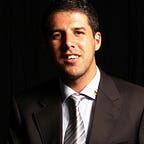Top Non-Fiction Picks from 2019
2019 has been an unusually good year with so many books to reflect back on. These books were not necessarily published in 2019, but this is when I got to them and believe remain as much relevant as when they were first released. I have selected these specific ones because they influenced how I look at and do things in some noticeable way.
David and Goliath: Underdogs, Misfits, and the Art of Battling Giants
Author: Malcolm Gladwell
This potentially-a-classic recounts stories of individuals and organizations who embraced their weaknesses to succeed in unconventional situations, often against much more powerful circumstances. Weaknesses, the book argues, can very well be strengths depending on the situation (e.g. think agility in a small start-up and a big corporation).
Takeaways:
- Embrace your weaknesses.
- Don’t be overconfident in your strengths. They can be on and off themselves weaknesses depending on the situation.
- Question the rules of the game whenever possible. Rules might not be optimized for your specific strengths and weaknesses.
Marie Curie: Portrait intime d’une femme d’exception (French)
Author: Barbara Goldsmith
This book gives a thorough historical account of how a child in Poland went on to define the material world as we know it by discovering radioactivity, new chemical elements (Polonium and Radium) and developing techniques for isolating isotopes. The author also tells a heartbreaking story of a strong woman who had to fight for recognition in a man-dominated world.
Takeaways:
- Remarkable things happen by recognizing other people’s work, questionning it and building on it.
- Many people misused radiative products in the early days because of its seemingly magical power. This obviously lead to a dark period in history. The lesson here is that it is always necessary to fully understand the implications of new technologies and discoveries.
- With enough willpower and curiosity, breakthroughs will eventually emerge even when resources are scarce and society is biased against you.
Ultralearning: Master Hard Skills, Outsmart the Competition, and Accelerate Your Career
Author: Scott Young
This book tells a story of a fresh graduate who completed the undergraduate curriculum at MIT in a year instead of four. The subject then proceeded to become conversational in several languages, learn how to draw and pick several other skills in very short periods of time. The book discusses the strategies used to achieve these feats.
Takeaways:
- Learning often takes long periods of focused work (versus scattered periods of learning).
- Always aim for building intuition (i.e. mental models) for what you are learning.
- Optimize your learning plan for what you are trying to achieve. For instance, before taking on a new learning challenge, ask yourself: why are you learning the skill? Then optimize your learning plan accordingly.
Principles: Life and Work
Author: Ray Dalio
This book tells a story of one of the largest investment management companies in the world: Bridgewater Associates. More importantly, the book recounts how this organization managed to grow from a two person office to managing +100 billion dollars of assets and advising many governments across the globe. According to the author, this was achieved by developing and following a set of “timeless” principles even when general wisdom suggested otherwise. This strategy worked particularly well during the 2008 global economic crisis.
Takeaways:
- Human organizations are systems where each individual plays a role optimized for the optimal operation of the entire system. These systems need to be assessed analytically and upgraded as needed.
- History is full of patterns. It helps to reframe the problem in hand and look at similar situations that happened in other places and times.
- Quantify and log what you do as much as possible, that’s how you learn from mistakes and develop principles for your own organization or self.
- Trust the believability scores. When you look at an opinion, try to understand where it comes from: is it an opinion from an expert’s experience? is it backed by data? is it applicable to the situation in hand?
You Are a Badass: How to Stop Doubting Your Greatness and Start Living an Awesome Life
Author: Jen Sincero
If you have heard the expression “it’s all in your head”, this book is really an extended essay on this very point. Our subconscious brains are full of assumptions that stand in the way of our best selves. The author makes it a point to take a step back and take a hard look at what is in our subconscious.
Coincidently, I friend recently told me “maybe it was not meant to be” to justify why their career goals never materialized .
Takeaways:
- It’s probably all in your head. Take the time to analyze why you are thinking what you are thinking.
- Don’t be afraid to question general wisdom and think for yourself and your own circumstances.
